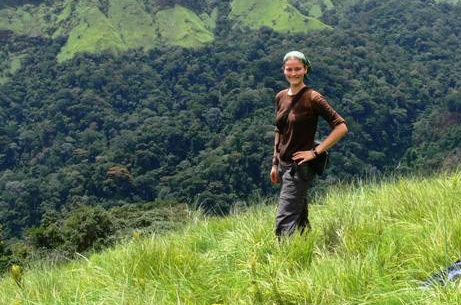
Kathelijne's most recent findings suggest that chimpanzees mourn the death of their own much like humans do.
Kathelijne Koops‘ research on chimpanzees has grabbed more headlines.
Kathelijne’s most recent findings suggest that chimpanzees mourn the death of their own much like humans do. The co-authored article (PDF 450k) appeared in the magazine Current Biology and the findings were picked up by the BBC, the New Scientist and Discovery News.
Previously, Kathelijne and her colleagues in Cambridge discovered evidence that some wild chimpanzees in Guinea’s Nimba Mountains use tools to cut their food into smaller, more chewable bits. The findings were published in the journal Primates and were picked up the BBC and the New York Daily News.
Further information about Kathelijne and her work appears on our case study page.
.jpg)












